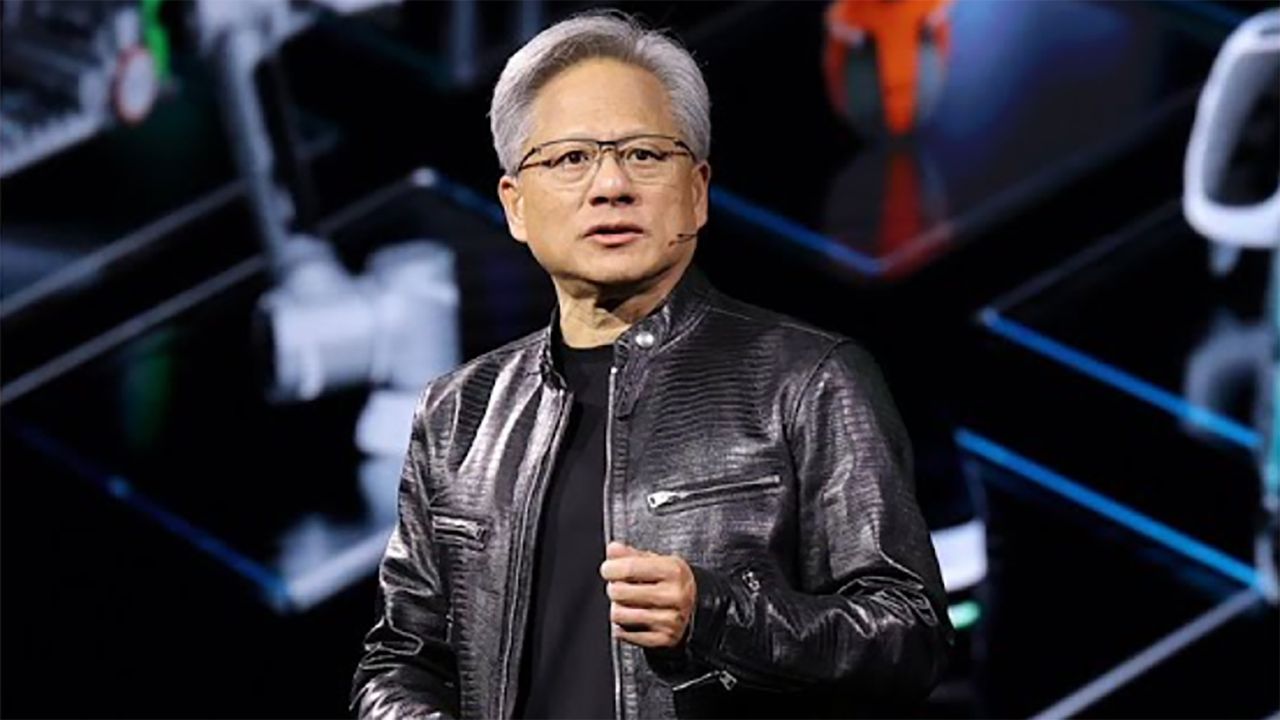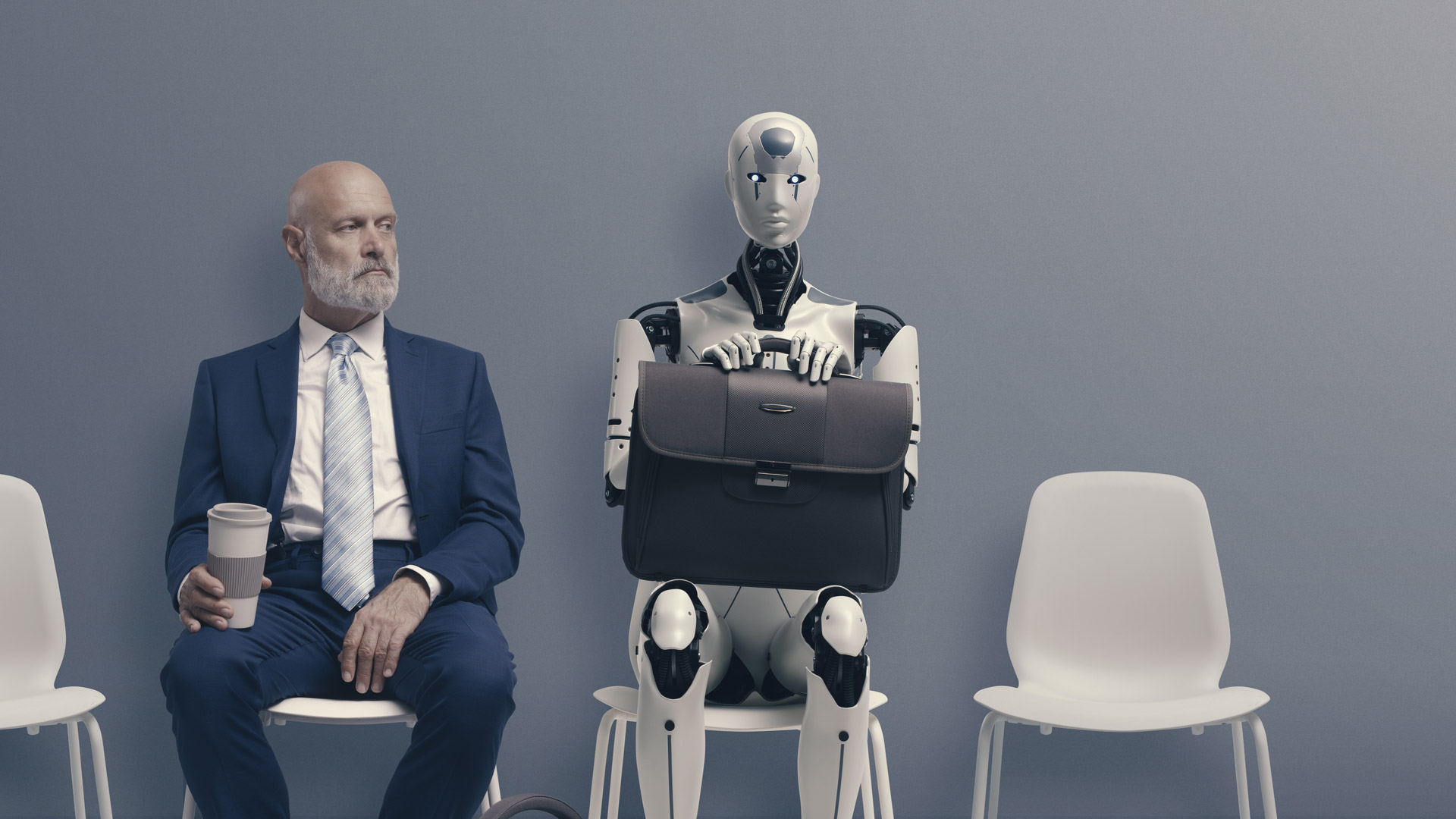
For as long as I've been covering AI, people have asked the same question: Is AI coming to take our jobs? The short answer might be yes, but if you listened to Nvidia CEO Jensen Huang's thoughts on the topic, you might realize the threat is not necessarily just AI.
Huang, who has been CEO of Nvidia for 30 years and is now riding a massive wave of AI adoption built largely on the back of his silicon and servers to a new $5 trillion valuation for his company, had just wrapped up his Nvidia GTC keynote when influencer and What's Trending host Shira Lazar approached him with a trillion-dollar question: "What do you tell people who are scared of losing their jobs?"
Before we get to his answer, it's worth considering the context. Nvidia GTC, or GPU Technology Conference, is a showcase for the company's bleeding-edge innovations and, in recent years, has largely revolved around AI. Much of his keynote showed AI-generated videos depicting AI's seemingly endless potential across a range of industries.
Nvidia is not just the world's most valuable company; it's also partnering with most major tech and AI companies, including OpenAI, to further develop and power the models we now use for everything from recipe ideas to trip planning, document summarization, and ideation. They're also increasingly being used by companies to handle tasks that might normally have been handed to entry-level employees.
The ability to drive AI and possibly achieve Artificial General Intelligence is, in some ways, largely dependent on Nvidia and its ability to build the platforms to support all the computations necessary to build ever-more-intelligent models.
Those smarter models and, especially, AGI will define the coming age of AI innovation and a reimagining of the global workforce.
I finally met @nvidia Founder and CEO Jensen Huang at #NVIDIAGTC and got to ask him how AI will impact Hollywood, entertainment, and the creator economy. Plus, what he’d say to people afraid of losing their jobs.What do you think of his take? pic.twitter.com/tqa2kSulNsOctober 29, 2025
There are already signs that AI is forcing change. Just this week, Amazon laid off 1,000 workers as it invested further in AI.
Which brings us back to the question.
To his credit. Jensen, who first helped engineer the desktop graphics revolution in the mid-1990s, did not shy away from the question. Instead, he sort of spun it on its head.
“You’re not going to lose your job to AI. You’re going to lose your job to someone who uses AI," he told Lazar.
Now, on the one hand, that can sound incredibly callous: It's not AI, but it also is AI, and you are screwed either way.,
However, I think there's a different meaning here.
“You’re not going to lose your job to AI. You’re going to lose your job to someone who uses AI."
Jensen Huang
When I talk to people about the coming AI revolution (we're arguably already in it) and "AI Time" (the speed of current innovation is 3X that of what it was for previous tech epochs), I encourage them not to stick their heads in the sand, but to, if nothing else, lightly embrace it. Become conversant in the latest platforms (Gemini, Sora, ChatGPT, Claude AI, etc.) and their capabilities. Test the waters. Understand.
This, it seems, was Jensen's point. He continued, "My best advice is to engage with AI as fast as you can."
I know that's easier said than done. While fear can be a motivator, it's often a catalyst for withdrawal. Even though many customers are already using AI, it's more or less a black box to them. They don't understand how the magic happens. Sometimes they trust too much. Other times, they simply refuse to try it.
Valid concerns about what AI might be doing to the environment (all these servers, so much heat, "boiling the ocean") mean that some refuse to engage with it on principle. I get that, too, but if you accept that AI is not going anywhere, perhaps we can all work to help ensure that companies like Nvidia are developing AI in environmentally responsible ways.

Nvidia is aware of the impacts of AI development. In its 2024 sustainability report, Nvidia admits that training AIs consumes energy but argues that "applying AI saves energy". In that same report, it claims that AI is helping us adapt to climate change by training AIs to recognize and predict weather patterns. The good news is that, according to its 2025 Sustainability Report, it achieved "100% of NVIDIA’s global electricity consumption is powered by or matched with renewable energy."
Whatever Nvidia's long-term plans are for mitigating the environmental impact of AI model development, without our engagement on the AI front, we can't influence or course-correct AI development for a better future.
But at a more practical level, I think Jensen is right. No matter how you feel about AI or how you engage right now, there is a solid chance that someone else who has deeply engaged with AI will take your job, simply because you refused to do so.
Of course, for Jensen, there's another reason to use AI. As he told Lazar, "It's more fun than people think it is."
Follow TechRadar on Google News and add us as a preferred source to get our expert news, reviews, and opinion in your feeds. Make sure to click the Follow button!
And of course you can also follow TechRadar on TikTok for news, reviews, unboxings in video form, and get regular updates from us on WhatsApp too.







